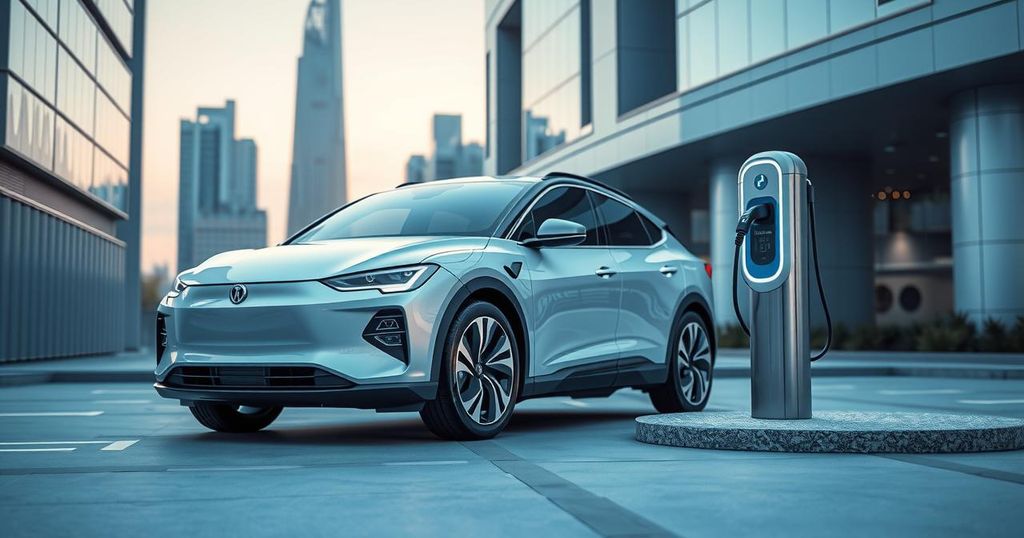Tesla vs. BYD: Are They Competing in Different Markets?
Tesla’s market share in China is stabilizing as BYD’s rises, attributed to different strategic focuses. Recent sales declines may not be permanent, with strong performances in other markets. Elon Musk downplayed stock valuation fears while investors see current dips as opportunities. Ford ensures its charging solutions align with Tesla standards.
The competitive landscape between Tesla and BYD in China is evolving, with Tesla’s market share plateauing while BYD’s continues to grow. This shift is often attributed to a perceived negative sentiment towards CEO Elon Musk, yet his influence may be overstated. Furthermore, Tesla operates within a different market strategy, selling only two fully electric vehicles compared to BYD’s expansive and diversified product lineup, which includes hybrids.
Currently, Tesla Giga Shanghai is undergoing retooling for the new Model Y, which may have affected sales. Amidst a reported 49% drop in vehicle shipments, Tesla still demonstrated strong sales in South Korea and the UK, indicating that the sales decline may be temporary. The company’s future profitability may depend less on automotive sales and more on its broader technology potential, making direct comparisons to BYD potentially misleading.
Elon Musk responded to concerns over Tesla’s recent stock valuation drop, asserting confidence in the company’s long-term stability despite a 15.4% decrease in share price. He noted that the company has experienced significant fluctuations before but managed recovery in the past. Analysts, meanwhile, have articulated a variety of views, with some supporting Tesla’s potential gains in light of upcoming technological advancements, such as self-driving technology.
Following the significant stock slide, investors are viewing present conditions as a buying opportunity. Major investment firms like ARK Invest made substantial stock acquisitions, underscoring their confidence in Tesla’s long-term prospects. Notably, despite some negative investor sentiment concerned about Musk’s involvement in government, the majority believe foundational sales and future revenues remain intact, suggesting the company might overcome current challenges.
In a related development, Ford has dispatched replacement adapters for Tesla’s North American Charging Standard to nearly 140,000 owners. The company has introduced these adapters to ensure robust EV charging without concerns over potential damage experienced with the original devices. This further illustrates behind-the-scenes initiatives by automotive manufacturers to adapt to evolving market standards and align with Tesla’s Supercharging infrastructure.
In conclusion, the rivalry between Tesla and BYD highlights differing market strategies, with Tesla focusing on limited product offerings while BYD benefits from a broad range. Despite recent sales dips, Tesla remains strong in key markets and demonstrates potential through technological advancements. Investors continue to support Tesla, viewing current stock prices as a strategic entry point for long-term potential. Additionally, Ford’s proactive approach to address EV adapter issues speaks to broader industry adaptations to the electric vehicle landscape.
Original Source: www.teslarati.com




Post Comment